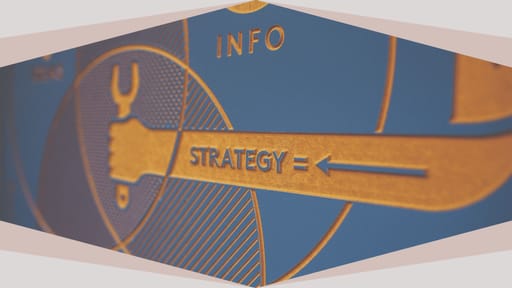Building a Culture of Recognition: Strategies for Rewarding Remote Employees

by Cindy Mielke

Cindy Mielke is passionate about the incentive industry. In addition to her role as Vice President of Strategic Partners at Tango, she is a Certified Professional of Incentive Management who proudly serves on two industry boards. When not working, Cindy enjoys spending time with her family—including three cats, two dogs, and a horse — and sharing her love of nature as a Nebraska Master Naturalist.
For several years now, the concept of operating a business with a distributed workforce has become more common for modern organizations. While the traditional in-office company culture hasn’t gone away by any means, more businesses are recognizing the value that offering more flexible working arrangements can provide.
However, along with the additional flexibility and reduced operating expenses that managing a distributed workforce can bring, there are also several challenges that businesses face. One of these roadblocks is making sure all employees continue to feel valued by their employer, regardless of whether or not they work in a physical company office.
Understanding the Importance of Recognition in Remote Teams
As humans, all of us are hardwired to actively seek recognition or approval in the things we do. While not everyone responds the same way to feedback, praise, or criticism, receiving some type of validation from others that we’re moving in the right direction or doing a good job is important for everyone.
From a business perspective, however, employee recognition can be a vital component of building—and retaining—a high-functioning workforce. Below are some of the ways that recognition is linked to important business metrics:
-
Improved Overall Performance: Receiving a certain level of recognition for your efforts lets you know you’re accomplishing the goals you’ve set for yourself or have been put in front of you by others. For employees, this can lead them to be excited about their accomplishments and continue to go the extra mile to achieve even more for themselves and the business.
-
Better Collaboration: When you take the time—either on a one-on-one basis or in a team setting—to acknowledge the efforts your employees are putting in, it shows that your time and theirs are worth using to celebrate various achievements. This helps to instill a sense of importance in communication on all levels, helping employees place a larger value on collaboration with one another.
-
Increased Employee Retention: Considering how competitive the job market is today in various industries, having an effective employee retention strategy in place is vital. Reward programs are a great way to support this effort by helping employees feel like they’re more than just another cog in the machine.
-
Positive Brand Image: Building and maintaining a positive brand image goes hand-in-hand with a business’s ability to retain and keep quality employees. When an organization implements different initiatives focused on keeping their employees motivated and happy in their roles, this makes it more likely that staff members will share their great experiences with friends and others.

Strategies for Effective Employee Recognition in Distributed Companies
For companies that manage distributed workforces, building an effective employee recognition program can be challenging, considering that employees may work in different time zones or be isolated from in-office staff. However, there are many successful strategies organizations can implement to still show all employees that they are valued:
Peer-to-Peer Platforms
Many modern organizations are using unified platforms where employees can manage all of their work-related assignments while also being able to easily connect. These peer-to-peer platforms can be a great way to introduce gamification and places where their achievements can be seen and celebrated by everyone throughout the workweek.
Points-Based Reward Systems
A points-based reward system is a great way to not only tell your employees that you appreciate their efforts but also show them various rewards that they can earn throughout the year. Using this type of program, employees can earn a certain number of points for completing certain tasks or hitting different milestones while being able to redeem those points later on for all types of rewards like gift cards, incentive pay, or other workplace perks.
Company-Wide Announcements and Awards
Not all employees expect their employer to provide them with lavish gifts or expensive forms of praise. Many times, having their achievements recognized or shared with others has the same impact. Making company-wide announcements or designing an award ceremony for employees is another great way to recognize all employees, regardless of where they work, and show how appreciated they are.
Manager-Led Performance Reviews
Performance reviews are a great format that can be used to both help remote or in-office employees see where they can improve, and be a great time to praise them for their accomplishments. Organizations should make manager-led performance reviews mandatory at regular intervals throughout the year so they can be incorporated into the business’s employee recognition program.
Personalized Praise in Virtual Meetings
While it’s usually unlikely that all employees will be able to attend in-office meetings when operating a remote workforce, virtual meetings—whether impromptu or regularly scheduled—can be a great format to share personalized praises for various employees. This can create a positive atmosphere for all employees to enjoy and is also a great tone to set before and after strategic business meetings.
Dedicated Channels for Celebrating Wins
Many companies that operate with distributed workforces invest in messaging solutions like Slack or Microsoft Teams to keep employees connected and on task. However, while these solutions are great for general business discussions, they can also be used to show recognition. Businesses can create custom channels on their messaging applications that are especially in place to celebrate individual or team wins and share motivational information about the company's ongoing success.
Small Gifts and Handwritten Notes
Rewarding an employee for their efforts doesn’t necessarily mean dipping deep into the business budget. Many times, smaller gifts or even handwritten notes can be given to employees more often throughout the year and help to add a personal touch to employer recognition. This can leave a lasting impression on employees and help to establish a more emotional connection between staff members and their employers.
Shout-Outs in Company Newsletters
Company newsletters, blogs, or podcasts are another great way to highlight the efforts of particular employees or share their accomplishments with others. For some employees who may feel their lack of physical presence impacts how they’re viewed by the company, this gesture can address those concerns and make them feel more integrated into the team.
Measuring the Impact of Your Recognition Efforts
Although it is often assumed by businesses that employee recognition should be spontaneous, or even discretionary to ensure the gesture stays authentic, it is important to have in place a certain level of trackability when it comes to the type of employee recognition initiatives happening throughout the year.
The reason for this is that it makes sure you’re able to quantify how impactful the recognition or rewards are on your staff and helps you to make adjustments to your strategy over time as needed.
There are a variety of ways that businesses can measure the impact of their employee appreciation initiatives, including conducting employee engagement surveys, reviewing their employee retention rates, and soliciting open feedback during employee performance reviews. All of these methods are great ways to gather more information from your employees on whether or not they are adequately acknowledged by the company and are receiving the motivation or incentives they need to perform to their full capabilities.
Show All of Your Employees That They Matter
It isn’t always easy to make sure every employee in a distributed workforce feels the same amount of recognition or appreciation as everyone else in the company. This is why it’s important to implement effective employee reward initiatives that help a business remain consistent when showing employees the value they bring.









